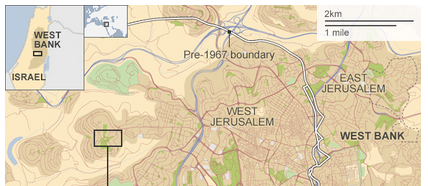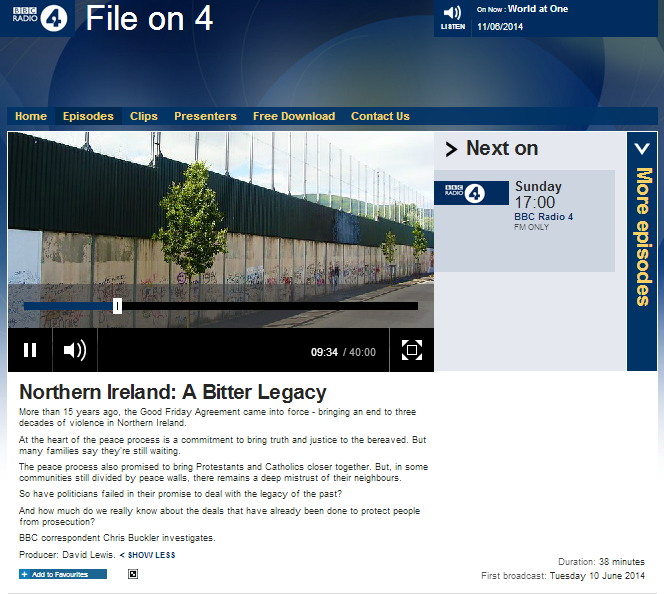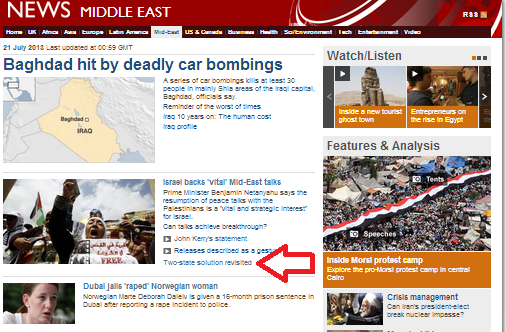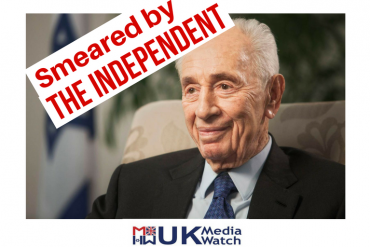On November 19th the BBC News website published an article titled “Jerusalem attack: Synagogue reopens for worshippers“. Like previous BBC coverage of the terror attack in Har Nof the day before (see here), this article too provides readers with a variety of supposed ‘reasons’ for the recent surge in violence and terrorism in Jerusalem and elsewhere, several of which were also to be found in Yolande Knell’s ‘backgrounder’ of November 7th.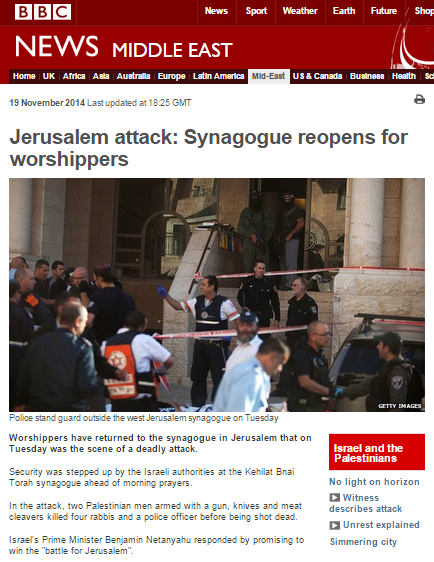
- ‘Settlements’
“The advancement of plans in recent months for new settlement homes on land annexed to the city has angered Palestinians, who want East Jerusalem to be the capital of their future state.”
- A “cycle of violence” and the summer conflict.
“Jerusalem has experienced months of violence since a Palestinian teenager was abducted and burned to death in July in a suspected reprisal attack by Jewish extremists for the abduction and killing of three Israeli teenagers in the occupied West Bank in June.
The killings set off an escalating cycle of violence, leading to a 50-day conflict between Israel and Palestinian militants in the Gaza Strip that claimed more than 2,000 lives.”
- A supposed “dispute” over Temple Mount.
“Tensions in Jerusalem have recently been heightened by a dispute over a compound known to Jews as the Temple Mount – the holiest site in Judaism. The compound is known to Muslims as al-Haram al-Sharif and contains the al-Aqsa Mosque, the third-holiest site in Islam.
Orthodox Jewish campaigners in Israel are challenging a longstanding ban on Jews praying at the compound. Last month, a prominent Jewish activist was shot and wounded by a Palestinian gunman.”
Once again we see the BBC promoting the inaccurate notion of a “dispute” over Temple Mount despite the fact that the Israeli government has stated clearly and repeatedly that it has no intention of changing the status quo at the site. We also see once again BBC promotion of the inaccurate claim that the campaign for equal prayer rights for non-Muslims at Temple Mount is an “Orthodox” issue.
Notably, the issue of Palestinian incitement is once again absent from this report.
The article includes a graphic (also used in additional reports) which shows what it inaccurately describes as the “pre-1967 boundary” in Jerusalem.
That line is of course the 1949 Armistice Line which was never intended to be a “boundary” – as specified in the Armistice Agreement itself.
“Article II
With a specific view to the implementation of the resolution of the Security Council of 16 November 1948, the following principles and purposes are affirmed:
- The principle that no military or political advantage should be gained under the truce ordered by the Security Council is recognised;
- It is also recognised that no provision of this Agreement shall in any way prejudice the rights, claims and positions of either Party hereto in the ultimate peaceful settlement of the Palestine question, the provisions of this Agreement being dictated exclusively by military considerations.”
Another notable feature of this article comes in the following paragraph:
“Before dawn on Wednesday, Israeli troops demolished the home of a Palestinian who killed a baby and a woman last month by ramming a car into a Jerusalem tram stop. The man, Abdel-Rahman Shaloudi, was from Silwan, an area of occupied Arab East Jerusalem.”
With regard to the use of the phrase “Arab East Jerusalem”, the BBC’s style guide instructs as follows:
“BBC journalists should seek out words that factually describe the reality on the ground and which are not politically loaded. Avoid saying East Jerusalem ‘is part’ of Israel or suggesting anything like it. Avoid the phrase ‘Arab East Jerusalem’, too, unless you also have space to explain that Israel has annexed the area and claims it as part of its capital (East Jerusalem is sometimes referred as Arab East Jerusalem, partly because it was under Jordanian control between 1949 and 1967). Palestinians want East Jerusalem as the capital of a future state of Palestine.”
Curiously, the BBC apparently believes that Jordan’s 19-year belligerent occupation and subsequent annexation of parts of the city of Jerusalem (unrecognized by the international community) justifies the description of those areas of the city – including neighbourhoods from which Jews were expelled – as “Arab East Jerusalem”. Even more bizarre is the BBC’s apparent belief that such terminology is not “politically loaded” and hence meets its guidelines.

